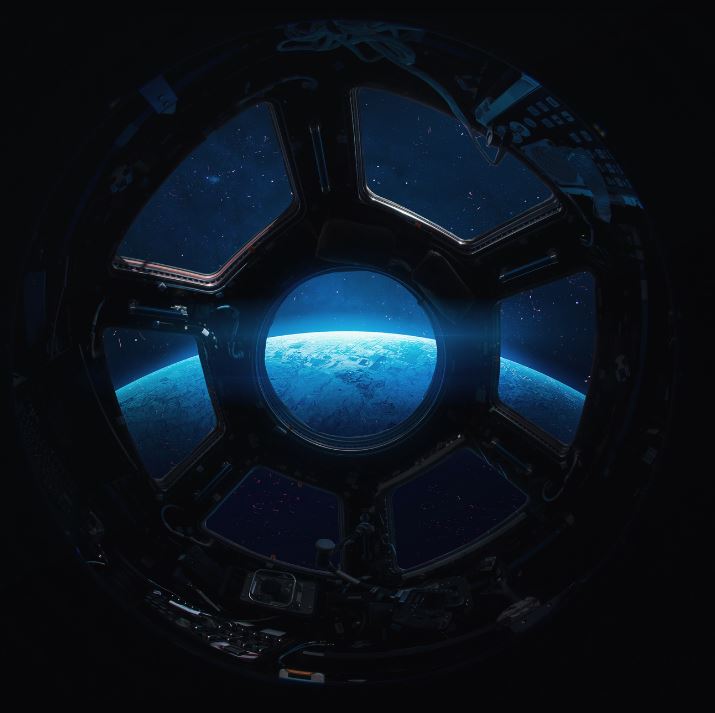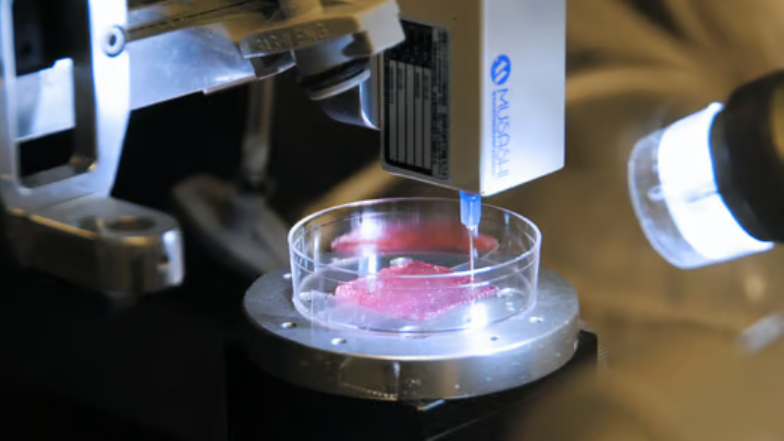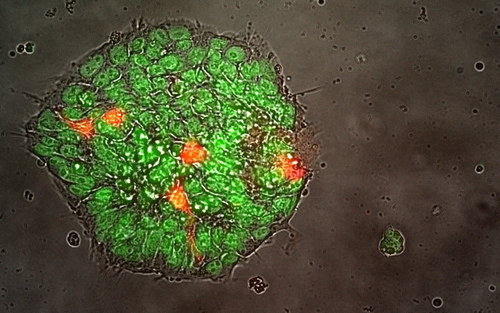Sales Playbook Section 5: Payloads
- Feasability Assessment
- General Recommendations
- Payload Services Provided by Axiom Teams
- Who is involved?
- Crew Training
- Research Constraints
Axiom Space is developing the first commercial space station with a vision of creating a thriving home in space that benefits every human, everywhere. Building on the pioneering work of the International Space Station, to expand the Low Earth Orbit frontier, Axiom’s vision is to make living and working in space commonplace to sustained deep space exploration, and to improve the quality of life here on Earth.
Axiom Space currently offers clients access to the International Space Station (ISS) via both Private Astronaut Missions (PAMs) and NASA’s ISS Commercial Resupply Services (CRS) missions. Axiom Space works with NASA (and potential implementation partners) to launch, operate, and return astronauts and payload projects and has thus far implemented science and technology research portfolios from the European Space Agency (ESA), Kingdom of Saudi Arabia, Italy, Sweden, and Türkiye, across three missions.
The below information is to help you understand the process and personnel used to evaluate and negotiate payload projects and understand realistic expectations for payload integration and operations. We should never commit anything to a customer without company coordination as there are a variety of factors that impact feasibility (schedule, complexity, resource availability, etc.).

Feasibility Assessment
How do we determine what experiments can be done on the ISS?
The Axiom Payload Project Manager (PPM) team will coordinate a feasibility assessment and develop a Rough Order of Magnitude (ROM) for all experiment proposals received from prospective clients. Each individual payload will be assessed for the following prior to proceeding with the contracting process:
- Business objectives and constraints
- Payload Concept of Operations
- Hardware / software design maturity
- Resources required for:
- Payload transportation (ex. launch and return mass and dimensions, ability to trash items after use, temperature conditioning limitations, limited life durations, etc.)
- Payload operations (ex. operational durations, min/max number of operations, crew time, power, data, conditioned stowage, ISS services or consumables, facilities, support hardware, human research needs, etc.).
- Reasonability of Payload integration schedule (safety certification, verification testing, mission planning, operational product development, etc.)
Each payload will be assessed on individual attributes and can vary widely, but a common duration from proposal submittal to execution is at least 12 months.
After the feasibility assessment, Axiom management will review and approve the payload prior to committing company resources.

General Recommendations
For any researcher wishing to use the International Space Station, consideration should be given to the location of the experiment i.e. onboard the ISS, external to the ISS, or inside the crewed transport vehicle. A general list of available facilities can be found here, although we strongly encourage researchers to consult with Axiom Space during experimental design to understand the availability and functionality of facilities and resources that may be required for use.
For all research on an Axiom mission, crew time, upmass and downmass, volume, power, conditioned stowage and other resources are all limited. All payloads must pass relevant ISS safety certifications and other review boards as applicable, including Medical Boards, Security Control Boards, Software Control Boards, etc.
Payload Services Provided by Axiom Teams
· Integration schedule coordination and management
· Coordination of necessary access, facilities, and services
· Support throughout payload development and testing.
· Coordination of Certification of Flight Readiness preparation
o Coordination of Safety certification
o ISS and Transportation verifications
o Operations Products development and review
· Cargo Processing services
o Ascent and descent manifest maintenance
o Ground Processing support coordination.
o Ascent hardware receiving, packing and turnover to launch vehicle.
o Return hardware receiving and shipping to payload customer.
· Pre- and post- flight human research sample collection
· Operational support
o Crew training.
o Flight product development
o Flight timeline development
o In-flight operations
Customers will get more details about the services above once we’ve begun individual discussions on payload needs.
Who is involved?
Payload Project Management
Axiom provides each payload a Payload Project Manager (PPM). Each PPM works directly with the payload team as the main POC to guide and work through the NASA integration, flight certification, and approval process. They collect the necessary information for each payload to complete the payload integration process.
Payload Mission Management
The Axiom Payload Mission Manager (PMM) manages and leads a payload complement, supports operations and execution for the payloads, coordinates the human research science for consented subjects, and manages resources such as ISS facilities, crew time, and payload resources.
Flight Product Management
Axiom Research Officers (ARO) work with the Payload Project Manager (PPM), Payload Operations and Integration Center (POIC), at the NASA Marshall Space Flight Center (MSFC), and other external stakeholders to develop flight products used by flight and ground teams during the mission. AROs conduct Procedures Verifications (PVs), participate in internal and external timeline reviews, and provide support during on-orbit operations.
In-Flight Operations
Axiom provides real-time operations support from Mission Control Center-Axiom (MCC-A). In addition to the above console positions, Axiom provides complete in-flight operations support that includes crew outreach management, medical support, and data management.
Crew Training
ARO’s are the Axiom-specific (non-NASA provided) payload training session developer and crew trainers. AROs develop crew training lesson plans, develop training courseware, and conduct crew training sessions.
The L-90-to-60-day period for crew payload activities is mostly hands-on training for NASA-provided facility hardware that will be used by crew while on ISS.
During the L-60-to-15-day period, crew receives additional NASA facility-level training, and begins experiment-specific training.

Research Contraints
The below are six constraints that should be considered when discussing research with customers.
Total cargo transport (up/down) mass and volume
Based on previous Axiom missions, 20 kg of mass / 35 L of volume is available for cargo transport on an Axiom mission per crew seat. This includes both ambient and conditioned stowage. Limited additional mass/volume may be available to purchase and is contingent on the overall mission cargo complement.
Cargo transfer bags (CTBs) are the standard containers used by the Axiom Space team and its launch partners to send payloads and cargo to the International Space Station. The CTB has an internal volume of 49.53cm (Length) x 41.91cm (Width) x 24.13cm (Height) and can support a total mass of 27.2kg, therefore all hardware (plus packing material to protect it) must fit within these dimensions.
Conditioned stowage for payloads requiring special temperature conditions is an extremely limited resource (mass and volume) for both ascent and descent. The resource is allocated and planned considering the requirements and tolerances for each specific payload against the overall mission complement and on-orbit demands. In general, temperature control is possible for payloads during ascent as a limited resource, with less availability on descent. Cargo may be returned on a later flight depending on mission requirements and availability of resources. After return, Axiom Space can ensure samples are shipped as appropriate based on guidance from investigators.
Payload packaging and stowage should be coordinated with Axiom Space directly.
Power
On-orbit power and volume limits are dependent on specific payload operational needs, facilities, locations, and other planned payloads. For example, volume limits for a payload designed as an EXPRESS Rack locker insert are different to one designed for glovebox or furnace usage. Payloads with access to active thermal control will have different power limits than those with passive thermal controls. Depending on operational concept, Axiom Space can help identify the constraining resources (power, volume, data, etc.).
Vehicle-provided power is generally not available to payloads during ascent to the ISS but if it is required, Axiom Space may partner with facilities providers that can support experimental requirements. This would likely incur additional cost and require longer integration timelines.
Total crew time hours available
On a 14-day mission, crew are usually prohibited from activities on the first two days after docking (which may be longer than 2 days after launch, depending on time from launch to rendezvous with the ISS). Crew are also prohibited from activities on the final 2 days of the mission due to NASA contractual requirements with Axiom (although exceptions may be evaluated on a case-by-case basis). Based on these limitations, for a 14-day mission, total crew time available for research and experiments extends to a total of around 77.5 hours.
For daily activities, the astronaut workday is normally between 7.30am and 7.30pm UTC. The crew can be scheduled for up to 8 hours during this time for crew activities (research, outreach, etc.). Based on our experience from previous missions, research activities usually require around 6-8 hours per day but may vary depending on experimental requirements and other crew activities.
Experimental design timeline considerations
When designing experiments, Axiom Space recommends that researchers consider the following limitations on access to payloads or crew time during a mission:
- Experiments are turned over to the cargo team 3 days in advance of launch unless a late load is requested and scientifically required.
- Late loading into the vehicle takes place 30 hours prior to launch.
- Phasing (time from launch to docking with ISS) is dependent on orbital mechanics at the time of launch and can be anywhere from hours to days.
- Crew may not have access to payloads or be approved to take part in research activities on specific days (see section 5) unless appropriately justified and approved by NASA.
- Cargo return processing on the Axiom vehicle begins as soon as payloads are received after splashdown. Nominal hardware return to the research team is typically within 3 weeks, unless required earlier. For cargo return on a NASA vehicle, hardware turnover to the research team varies.
Axiom Space can help advise researchers on how to plan around and/or address these considerations based on the requirements of the experiment.
Total number of experiments
For a 14-day mission, a reasonable expectation for the total number of experiments for a research portfolio that may be performed in-flight is 10-15. This figure depends on many variables including complexity of the proposed research, the amount of crew time required, whether other urgent activities (e.g. ISS emergency procedures) take precedence for completion, and NASA approvals on the final research complement.
Research experiments can be performed in-flight, pre- or post-flight only, or both pre/post and during the flight.
Some examples of research portfolio numbers from previous Axiom missions:
- For the Ax2 mission, two Saudi crew completed 12 experiments in-flight over the course of 8 days.
- On the Ax3 mission, the Italian research portfolio consisted of 12 in-flight experiments and 4 experiments conducted pre- and post-flight.
- In contrast, the Sweden/ESA combined portfolio consisted of experiments flown by the Swedish National Space Agency as well as a number of ongoing ESA research activities, which increased the total number of research activities to 16 in-flight research-related activities, and 3 pre/post-flight experiments. Note that ESA payloads are integrated by ESA directly and follow a different integration process and timeline.
All research payloads must be reviewed and approved by NASA. The number of payloads that can be supported will vary depending on the complexity of the research and the number of months remaining before launch.
Total cost of payload integration
Integration costs for a research portfolio of 10-15 projects may be ~$1.5-2M. This does not include mass/volume costs or charges for crew time as those are included with the purchase of a seat. Costs may vary considerably depending on payload complexity.
Payload integration costs do not include shipping costs. Axiom Space can help coordinate shipping for additional cost and recommends consulting with local international shipping and customs experts to enable seamless import/export of research hardware and materials.